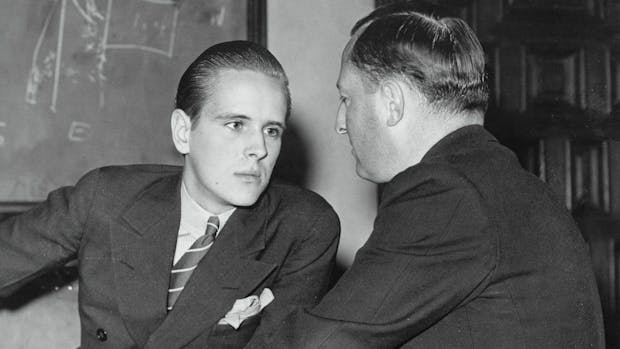meet Jesse Livermore

meet-jesse-livermore
a good trader in the stock market makes money in a bull run, but perhaps a great trader makes money all the time. and there has been no greater and more celebrated trader than Jesse Livermore.
“trade only when the market is clearly bullish or bearish,” Livermore once said. he made millions during the 1929 market crash. a simple strategy of riding the trend, buying in a bull market, and shorting stocks in a bear market made Livermore a millionaire. at his peak in 1929, he was estimated to be worth at least $100 million.
considered as a day trading pioneer, Livermore was born in Shrewsbury, Massachusetts in 1877 and at the young age of 14, he ventured into the world of stock trading as a “chalk boy” posting stock quotes for a brokerage.
observing investor behavior from the sidelines, Livermore realized early on that fear and greed have been intrinsic human characteristics and the key driver of speculation in the market. “there is nothing new on Wall Street. there can’t be because speculation is as old as the hills. whatever happens in the stock market today has happened before and will happen again,” he said.
Livermore’s philosophy
Livermore popularized the idea of spotting and riding market trends but was also cognizant of the fact such trade opportunities don’t show up daily on the market.
“there are times when money can be made investing and speculating in stocks, but money cannot consistently be made trading every day or every week during the year. only the foolhardy will try it. it just is not in the cards and cannot be done,” he said.
his life and investing philosophy are well-documented in Reminiscences of a Stock Operator, an unofficial biography of sorts written by financial journalist Edwin Lefèvre. the book is considered to be a must-read for traders.
while Livermore made his riches during the Great Depression, he was quick to lose his fortune, which many speculate was because of his extravagant lifestyle. by 1934, not a lot was left from his $100 million. soon he declared bankruptcy, had his second divorce, and in 1940 he died by suicide.
he never considered himself to be wiser than Mr. Market himself and preached that the market was always right. “markets are never wrong — opinions often are,” he said.



